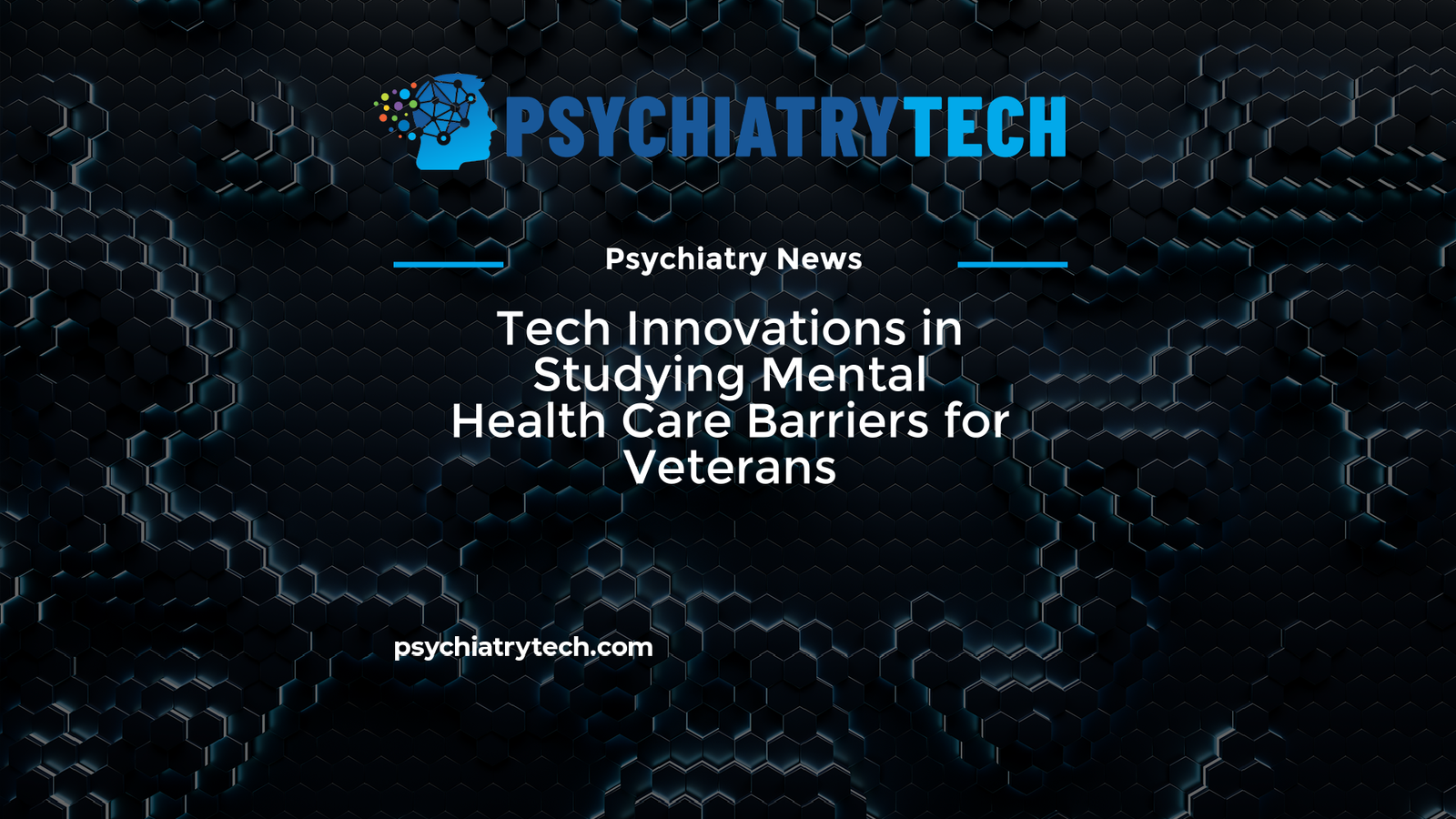Tech Innovations in Studying Mental Health Care Barriers for Veterans
Researching Mental Health Care Barriers
The Virginia Tech team aims to use technology to overcome some of the challenges veterans face when accessing mental health care services. Some of these challenges include:

Discover The World's MOST COMPREHENSIVE Mental Health Assessment Platform
Efficiently assess your patients for 80+ possible conditions with a single dynamic, intuitive mental health assessment. As low as $12 per patient per year.
- limited access to care in rural areas or regions without nearby facilities
- stigma associated with mental health issues, which can be a significant barrier to seeking care
- availability of qualified psychiatrists and therapists, particularly for specialized mental health needs
- administrative barriers that prevent veterans from accessing care or obtaining insurance coverage
The team will use data analytics and machine learning, along with other innovations like telehealth, to develop new approaches to addressing these obstacles. These solutions will help veterans receive the care they need and deserve.
Transforming Mental Health Care with Technology
Technology is transforming the way mental health care services are delivered. Innovations such as telepsychiatry, web-based platforms for therapy, and virtual reality therapy are all helping to make mental health care services more accessible to individuals who need them.
Technology-driven solutions can also improve access to care in remote areas or regions without nearby facilities. For example, telepsychiatry allows psychiatrists to provide care from a distance, giving patients access to much-needed psychiatric care from the comfort of their homes.
Web-based platforms for therapy, on the other hand, can make therapy more accessible to individuals who may not be able to attend in-person sessions. These platforms allow patients to connect with their therapist online, via messaging and video or phone calls.
Another exciting development is virtual reality therapy, which uses virtual reality (VR) technology to treat mental health conditions like PTSD. VR therapy creates simulated environments that allow patients to confront and overcome their fears, phobias, or traumatic memories.
Encouraging Collaboration Between Mental Health Professionals and Innovators
The mental health care sector can benefit significantly from collaborations with innovators and technology professionals. These collaborations can create new approaches to treating mental health conditions, helping to overcome challenges like the mental health care barriers that veterans often experience.
Innovation can also help mental health professionals improve their care delivery and data tracking. By using electronic health records (EHRs), psychiatrists and therapists can better track patient progress and treatment outcomes, allowing them to tailor care to the individual’s specific needs and preferences.
Additionally, digital tools like smartphone apps and wearable devices can further improve patient outcomes by helping individuals monitor their moods, receive reminders to take their medication, and engage in self-care activities.
A Final Note
Improving mental health care services is crucial to helping individuals lead healthy, fulfilling lives. By using technology to overcome obstacles to care, we can make significant strides in improving access to mental health care services and enhancing outcomes for individuals who need them most.
As a community of mental health professionals, technology enthusiasts, and concerned citizens, let us continue supporting initiatives and collaborations that use innovative solutions for the benefit of individuals facing mental health barriers.
Thank you for reading! Help us spread the word about these technology innovations and their potential to transform mental health care services by sharing this post on your social media pages.

